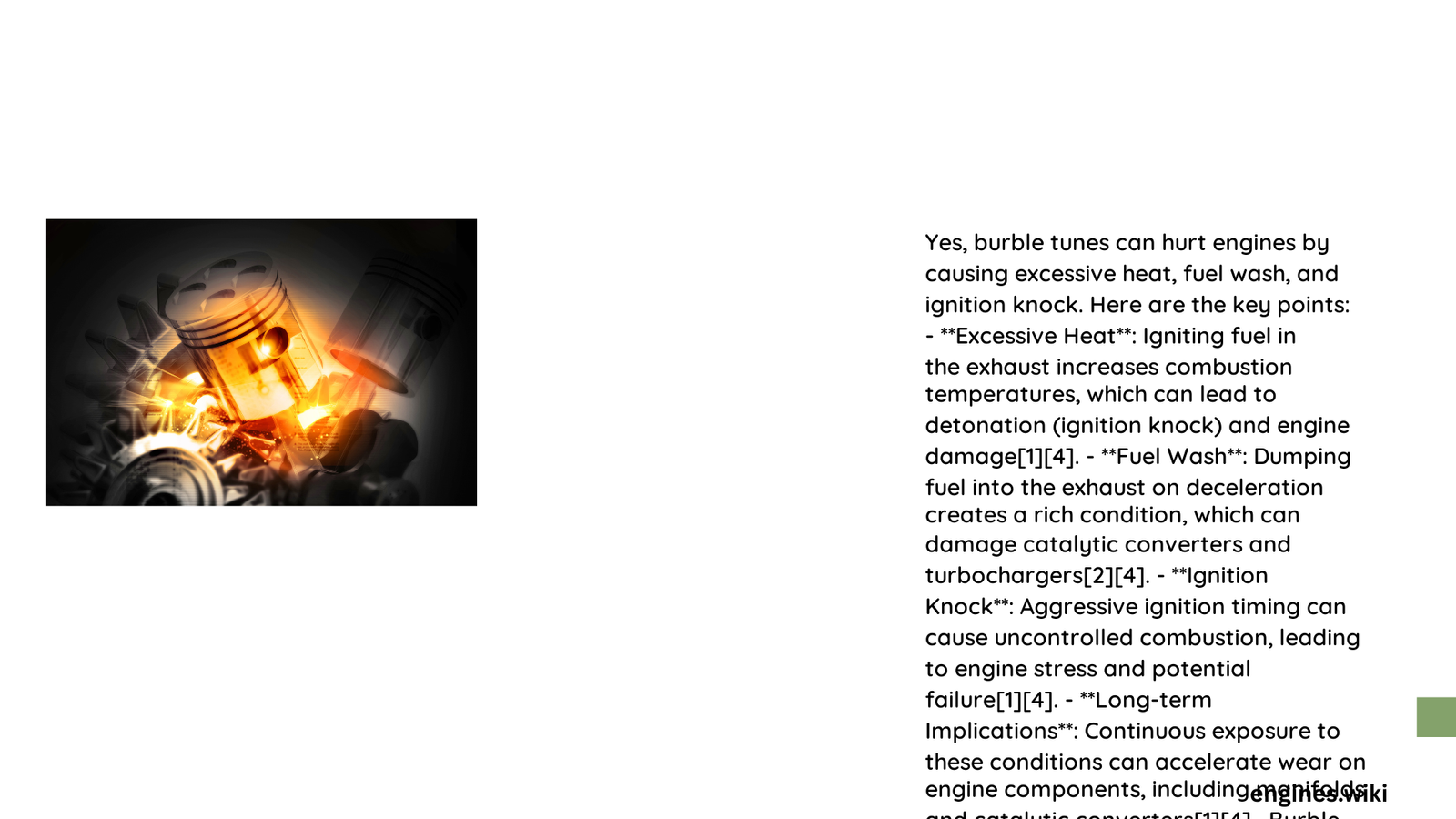A burble tune can significantly compromise your vehicle’s engine health, introducing multiple mechanical risks that extend beyond mere aesthetic sound modifications. Vehicle enthusiasts often overlook the potential long-term consequences of artificially creating exhaust pops and crackles, which can lead to premature component failure, increased heat stress, and substantial maintenance expenses.
What Exactly is a Burble Tune?
A burble tune is an ECU modification designed to create dramatic exhaust sounds by intentionally manipulating fuel injection and ignition timing. This process involves:
- Releasing unburned fuel into the exhaust system
- Causing controlled mini-explosions
- Producing distinctive popping and crackling sounds
How Does Burble Tune Potentially Damage Engine Components?

Temperature Stress on Critical Systems
| Component | Potential Damage | Risk Level |
|---|---|---|
| Catalytic Converter | Premature deterioration | High |
| Exhaust Manifold | Structural weakening | Medium-High |
| Oxygen Sensors | Frequent malfunction | Medium |
Exhaust Flow Disruption Mechanisms
Burble tunes fundamentally alter normal exhaust dynamics by:
– Creating uncontrolled combustion cycles
– Generating excessive back pressure
– Forcing fuel ignition outside combustion chambers
Fuel System Complications
Burble tunes introduce several fuel system challenges:
– Increased fuel consumption
– Rich mixture generation
– Potential oxygen sensor damage
– Higher emissions output
What Are the Performance Consequences?
Contrary to popular belief, burble tunes do not provide performance enhancements. Instead, they:
– Reduce fuel efficiency
– Potentially trigger check engine warnings
– Create unnecessary mechanical stress
Can Burble Tunes Cause Immediate Engine Damage?
While damage isn’t instantaneous, repeated burble tune applications can:
– Accelerate component wear
– Increase risk of catastrophic failure
– Void manufacturer warranties
– Compromise long-term engine reliability
What Experts Recommend
Professional automotive technicians generally advise against burble tunes, suggesting:
– Preserving original engine calibration
– Focusing on legitimate performance modifications
– Maintaining manufacturer specifications
Cost Implications
Potential repair costs associated with burble tune damage can range from:
– $500 – $2,000 for exhaust system repairs
– $1,500 – $5,000 for comprehensive engine component replacement
– Potential total loss of vehicle value
Conclusion
While burble tunes might seem appealing for automotive enthusiasts, the potential risks far outweigh momentary acoustic pleasure. Responsible vehicle modification requires understanding long-term mechanical implications.
